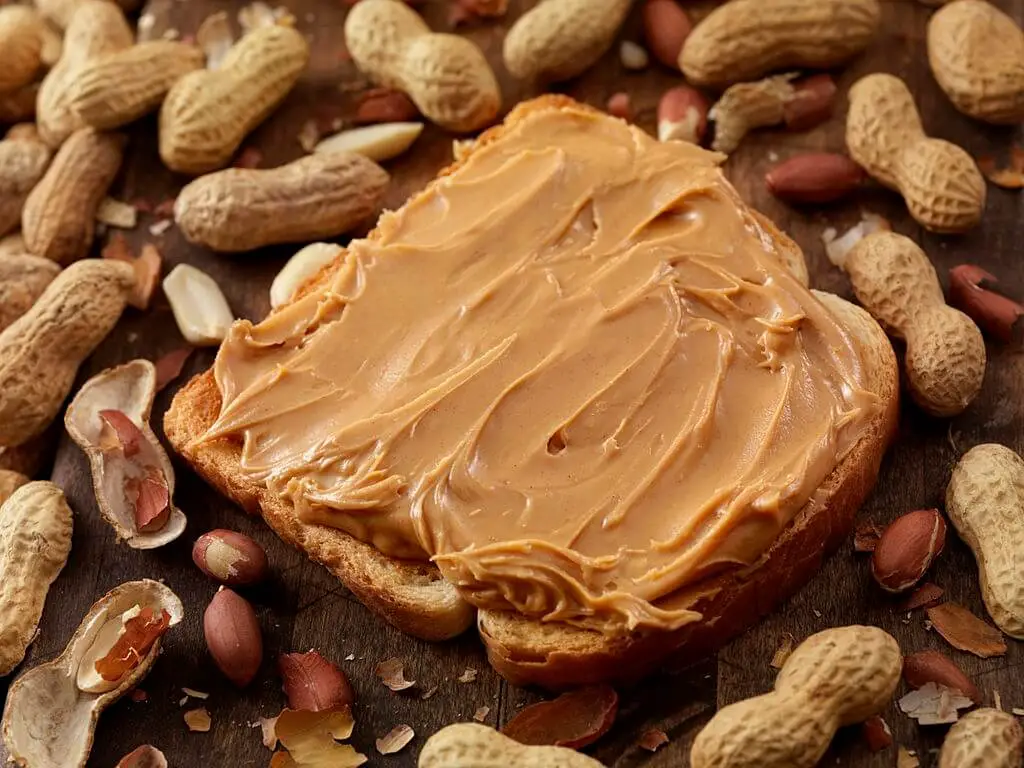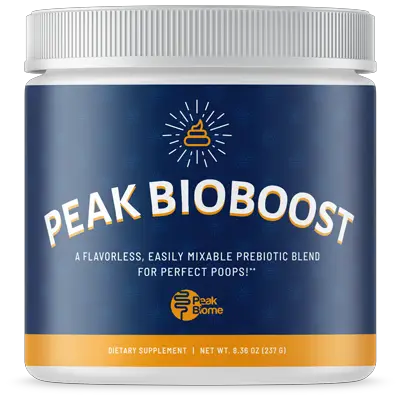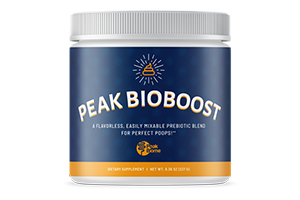Peanut butter is a great alternative to the regular butter you eat. It is healthy and has plenty of nutrients in each serving. Every 100gm serving of peanut butter consists of 25gm protein, 40gm fat, and 9.4gm fiber content.
Apart from these, peanut butter also contains a good chunk of carbohydrates, calcium, vitamins like niacin, folate, thiamin, minerals such as magnesium, phosphorus, zinc, and iron.
Along with several health benefits, there are some side effects associated with peanut butter. One such common side effect is constipation and digestion problems. Yes, peanut butter does trigger constipation in some cases. Let’s dig deep into the topic and find out how peanut butter constipates you?
Related Article: Can Mushrooms Upset Your Stomach?

Can peanut butter cause constipation?
Peanut butter is a healthy option to add to your diet. It is very uncommon to get constipated after eating peanut or peanut butter. Although peanut butter is safe to eat, it does impact bowel movement and can cause gas, diarrhea, and constipation.
Why does peanut butter cause constipation?
There can be several reasons which can affect your digestion or cause constipation. Eating peanut butter sometimes can trouble you in passing stool. To understand it better, you need to know the relation between peanut butter and constipation.
There could be five possible conditions that can affect your bowel movement after eating your favorite peanut butter.
1. High protein content in peanut butter
In today’s health enthusiast generation, where the keto diet is the fitness mantra, a high protein diet is becoming more popular. Many people are cutting their carb intake and increasing protein content in their diet for quick weight loss or impactful body transformation.
If you are taking peanut butter to fulfill your high protein requirements and not taking enough carbs, this can be a reason for your digestion problems.
Our human body is not very efficient in digesting a high protein and low carbs diet. This can lead your body to various metabolic changes.
Excess protein causes your kidney to work more to digest those extra proteins. This means that your body is going to need more fluid to support your digestive system. While you might not feel thirsty, your body is needing more hydration.
Studies show that for a high protein and low carb diet, your body needs extra hydration but fails to give you any thirst signal.
Low hydration can cause harder stool or eventually results in indigestion, gas, bloating, or constipation-like symptoms.
It is required for you to drink more water if you are on a low-carb diet and eating peanut butter.
Related: Can Your Drink Protein Shakes Without Working Out?
2. Peanut butter is high in saturated fat
Per 2 tablespoons of peanut butter contains around 5gm of saturated fat, approximately 17-20% of our daily recommended value. Higher saturated fat is associated with a higher risk of constipation and reduced stool frequency.
National Health and Nutrition Examination Surveys data show that a high saturated fat intake causes more chronic constipation in people with diabetes above 65 years, especially in females and those with poor glycemic control.
Peanut butter available in the market contains many added ingredients and chemicals, which increases its saturated fat and trans fat content. Both of these fats are bad for your digestive health and can result in constipation.
3. Salicylate sensitivity
Salicylate sensitivity or intolerance is not as common as lactose intolerance. But it can be a reason that you are constipated after eating peanut or peanut butter.
Salicylate is a natural compound found in peanuts. These can cause some negative effects on people with its intolerance. Peanut butter has a moderate amount of salicylates, but it can be a troublemaker if you have gastrointestinal problems or are sensitive to these compounds.
4. High in Niacin (Vitamin B3)
Peanut butter is considered a great source of niacin or vitamin B3. Two tablespoons (32gm) of peanut butter contain 4.5mg of niacin, which is about 25% of the daily required value for men and 30% for women.
Although niacin is extremely beneficial for your body and is required for your body organs’ proper functioning, high consumption of this vitamin is closely associated with digestion problems such as constipation, bloating, or hard stool.
Peanut butter is great for people having niacin deficiency. The recommended dose of niacin depends on your age and gender, but if you already are taking enough niacin from your diet and are eating peanut butter, it could be the reason for giving you a tough time on the toilet sheet.
Related Article: Does Pomegranate Make You Poop?
5. Peanut intolerance or allergy
Peanut is high in protein, and it can be a problem for some people. The type of protein found in peanuts can cause your immune system to identify as harmful. In response, your body can react to peanut protein and cause allergies. The most common allergic symptom from peanut butter is digestion problems and constipation.
Similarly, some people may find it difficult to digest peanut butter, causing indigestion and bloating. The reason for this can be salicylate present in peanuts.
If you are hypersensitive to salicylate, you should stay away from peanut and peanut butter.
Can peanut butter cause diarrhea?
Peanut butter, in general, does not cause diarrhea. However, this could be the opposite if you are allergic to peanut butter. Peanut butter allergy is a condition in which your body could not identify protein in peanut butter.
Instead, your immune system detects it as harmful. This results in releasing antibodies against peanut protein. This process triggers the body to produce more histamine. High histamine levels are linked to indigestion and diarrhea.
Conclusion
Peanut butter is a healthy choice to include in your daily diet. It has fiber, protein, carbs, and other nutrients, making it a good vegan butter. Although peanut or peanut butter does not have any direct side effects, it does contain high levels of saturated fat, protein, niacin, and salicylate that can cause constipation in some cases.










